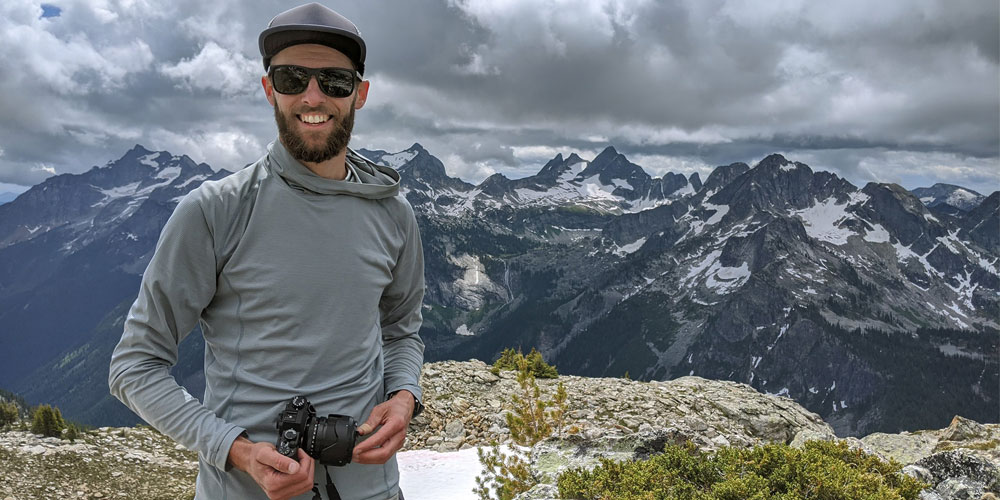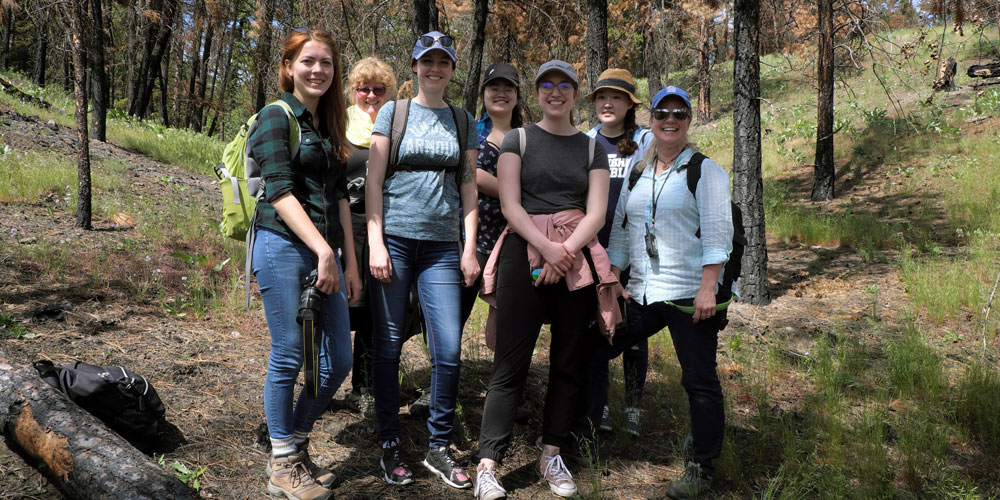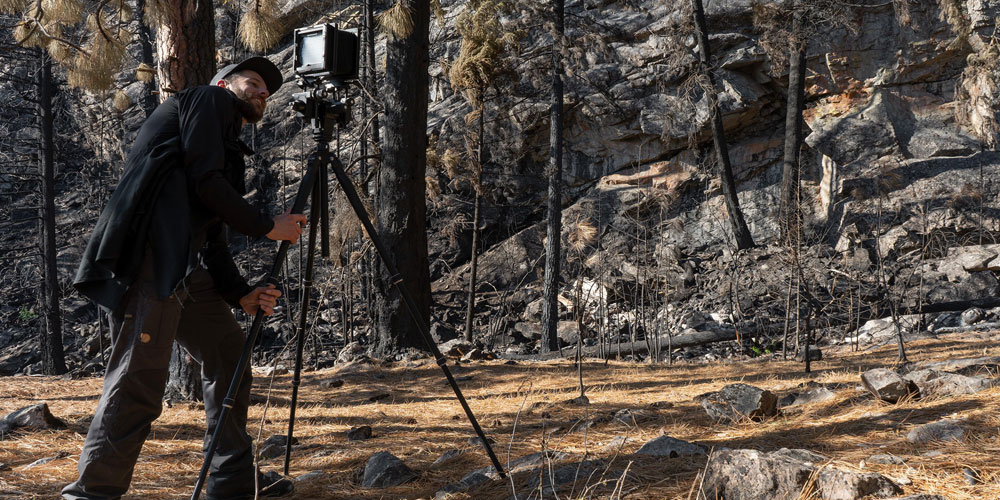
Andreas Rutkauskas, Valhalla Provincial Park summer 2020. Photo credit: Lianne Caron
Andreas Rutkauskas began teaching photography in the Department of Creative Studies in 2016, and has been a full time Lecturer since 2018. As an artist whose practice is rooted in direct experience within the landscape, he was attracted by the potential of the Okanagan as a location for fieldwork, as well as the diverse yet intimate nature of the Faculty of Creative and Critical Studies.
Andreas shared some insights on his teaching and research practices here at UBC Okanagan.
Tell us about your research interests and work as a photographer and artist.
I am passionate about the environment. As a photographer, I focus my attention on revealing alternative points of view regarding sites and events that are often represented in the media, including petroleum extraction, international borders, and climate change. I believe in the power of contemporary art to open up dialogue across various communities, and I strive to leave space for interpretation in my work, rather than adhering to a persuasive agenda. I have been fortunate to have my independent projects supported through provincial and federal arts funding, and have been undertaking collaborative research at UBCO through a New Frontiers in Research Fund grant called Living with Wildfire, alongside colleagues in the Departments of Earth, Environmental and Geographic Sciences, Sustainability, and Geography. We are collectively examining wildfire risk in the Okanagan and cultural perceptions of wildfire within one of Canada’s most fire-prone ecosystems.
How did you know you wanted to be a professor?
Teaching did not come to me naturally. I knew that I wanted to be an artist since I was eighteen, however it was when I arrived in Montréal and began my first year of graduate studies that I was offered a role as a teaching assistant. I was admittedly hesitant, however my professor provided me with a great deal of freedom, included me in curriculum development, and allowed me to direct certain classes by myself. I was immediately hooked, and enjoyed the energy that I received from discussing art with a group of like-minded individuals. I continue to obtain a great amount of energy from teaching, and our recent lack of face-to-face contact with students in light of the pandemic has been a challenge in this regard. On the other hand, this opportunity has allowed me to make valuable adjustments to existing courses. Even at this stage, I am always learning!
What kind of learning experiences do offer your students?
Photography, unlike other forms of contemporary art, requires that a subject be physically present for the artist to capture, therefore the ideal environment for most photographic learning is outside of the classroom. I bring my personal bias towards fieldwork into my pedagogy, generally encouraging images made on location rather than in a studio environment. My thematic assignments support this approach, but I am also interested in developing course content that relies on field trips and collectively experiencing the landscape as a means of generating content. During the summer of 2019 I led a field course that combined artistic and scientific approaches and increased student understanding of certain processes occurring in the land on which we currently reside. We can learn a great deal through direct observation of the world around us; I hope to inspire students to pay close attention to the minutiae of their surroundings.
Tell us about your artwork.
My primary medium of expression is photography, but I also employ other media such as video, and more recently immersive video to investigate landscapes that have been shaped by an array of human interventions. From 2012-2015 I created a photographic survey of the entire Canada/U.S. border, which is often referred to as the longest undefended land boundary in the world. Between 2009-2015 I worked on a project titled Virtually There, which examined our increased reliance on terrestrial imaging and geolocation technologies in experiencing the natural world. Currently, I am involved in a multi-year research project looking at the aftermath and regeneration following wildfires in the Central Interior of British Columbia and Rocky Mountain Region. You can learn more about my work by visiting my website: www.andreasrutkauskas.com
“I enjoy the ease of collaborative research outside of my home department at UBCO, especially when compared to larger institutions that I have worked with in the past.”

Field class lead by Andreas Rutkauskas, 2019

Andreas at work with his large format camera